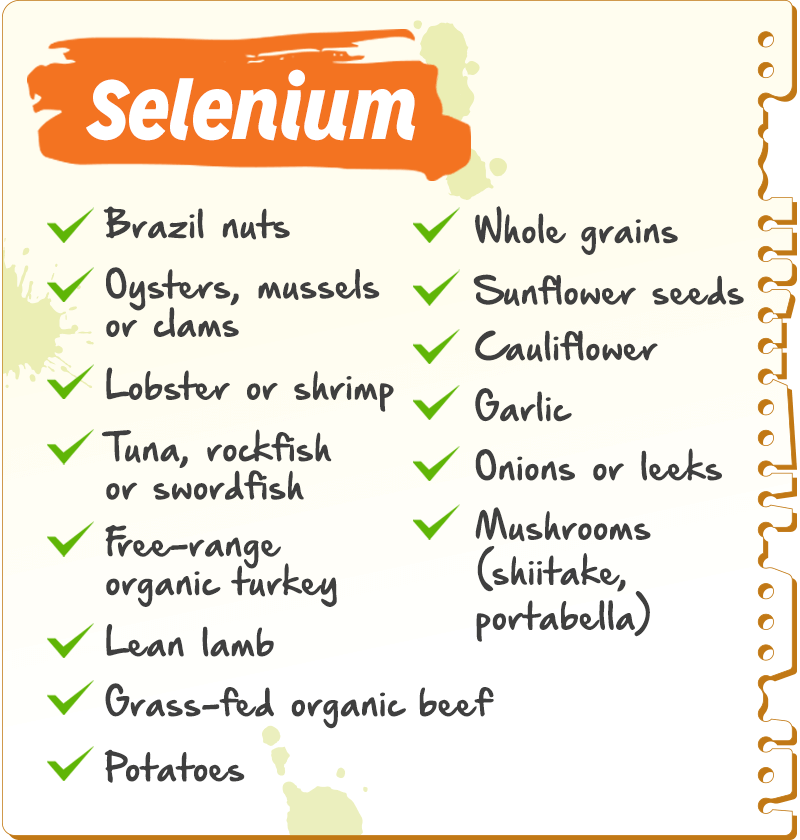Selenium
You only need a small amount of the essential nutrient selenium to reap big benefits for your immune system, reproductive health, and overall health and well-being. Studies indicate selenium can also offer protection against heavy metal toxicities. Yet worldwide, an estimated one-half to one billion people are deficient in selenium, with even more consuming less selenium than is necessary to provide disease-prevention benefits.
Fast Fact: Your chance of having a selenium deficiency is higher if you smoke cigarettes, take birth control pills, or drink alcohol.
Why You Need It: A potent antioxidant that works in partnership with copper, iron and zinc, selenium is an essential mineral of pivotal importance for human health. Like zinc, selenium is important for testosterone production and sperm development. Research shows low levels of selenium are associated with decreased male fertility. In women, low selenium levels appear to be linked with first trimester and/or recurrent miscarriages. Studies on the toxic effects of heavy metals, such as cadmium, silver and mercury found in seafood, show that selenium has a protective and detoxifying effect.
Selenium’s anti-inflammatory, anti-viral and anti-cancer properties are being studied to determine selenium’s potential in autoimmune diseases, thyroid problems including Hashimoto’s disease, cancer, heart disease, AIDS and asthma. Selenium is involved in the production of T cells, which are specialized white blood cells that destroy cells that have been infected with viruses or bacteria or have turned cancerous. Researchers are studying whether selenium supplementation may be beneficial in the treatment of viral hepatitis and in helping to protect people with hepatitis B and C from developing liver cancer.

× ![]()
Best Food Sources: Brazil nuts contain a highly absorbable form of selenium. Seafood, mushrooms and meat are also top sources. Oysters, mussels, lobsters, clams and shrimp, as well as tuna, rockfish and swordfish are wise choices from the sea. Animal sources include free-range organic turkey, lean lamb and grass-fed organic beef. Whole grains and sunflower seeds, garlic, onions, and leeks, and shiitake, portabella and crimini mushrooms are also high in selenium.
Supplement Suggestions: It’s best to get your selenium as part of a quality multivitamin. If you and your healthcare practitioner decide you need a separate selenium supplement, look for an organic form if possible.
Need to Know: Selenium deficiency increases risk for viral infections.